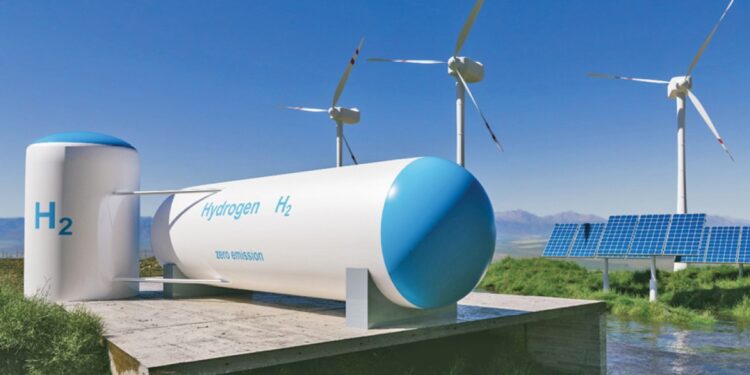Some of Europe’s biggest industry groups are urging the European Commission to implement tougher support requirements to protect the region’s hydrogen equipment manufacturers from the threat posed by cheap Chinese imports.
A coalition of 20 manufacturers, including industry giants Siemens Energy and ThyssenKrupp, has sent a letter to European Commission President Ursula von der Leyen highlighting the need for “Made in Europe” standards to protect local manufacturers, the Financial Times reported.
According to BloombergNEF, equipment produced by Chinese companies costs less than half the price of that produced by European companies.
“European leadership is under severe threat,” the manufacturers said in their letter, seen by the Financial Times. “It is time for a transformation of European trade, competition and industrial policy.”
The letter stressed that China’s support for state-owned hydrogen companies has created a “skewed playing field” that is harming Europe, the newspaper reported.
European response
The European Union has already begun to take a tougher stance on China, recently announcing tariffs on electric car imports and launching trade investigations into Chinese solar and wind energy manufacturers.
The United States and India have also provided subsidies to attract manufacturing in hydrogen equipment over the past few years.
Green hydrogen, which is produced by breaking down water using an electrolyser, is seen as crucial to decarbonising heavy industry, according to the Financial Times.
China currently leads the manufacturing of this equipment, producing 37% of the world’s supply, followed by Europe, according to the International Energy Agency.
Industry Voices
Haakon Foldahl, CEO of Nel Hydrogen, one of the signatories of the letter, expressed his commitment to European manufacturing. “I don’t want to give up on Europe,” he said. “If we don’t create demand for European technology in Europe, we are missing out on the chance for European OEMs to win,” the paper reported.
European manufacturers are calling, according to the Financial Times, for hydrogen cell units and electrolyser stacks to be assembled in Europe at the EU’s upcoming hydrogen bank auction at the end of the year.
Concerns were raised during the first auction in April, when nearly a third of the projects awarded did not rely on local technology.
Thierry Breton, the EU’s single market commissioner, has called for tougher criteria for auctions. “I will push to ensure that future auctions do not give subsidized technologies the opportunity to compete unfairly with European products, and that European funding effectively reduces dependencies, not the opposite,” Breton wrote on LinkedIn.
Support and criticism
Werner Bonikow, CEO of ThyssenKrupp, echoed the sentiment about protecting European interests, saying, “Everyone wants to see European taxpayers’ money fuel growth within Europe,” the newspaper reported.
Daniel Fraiel, chief policy officer at industry group Hydrogen Europe, backed the message, calling Chinese imports a “major threat.”
While Europe currently buys a small number of electrolyzers from Beijing, manufacturers warn that imports are set to grow as the sector develops.
The European Commission has pledged to produce 10 million tonnes of renewable hydrogen by 2030, and import an additional 10 million tonnes, as part of its goal to cut the bloc’s greenhouse gas emissions by 55% by the same date.



